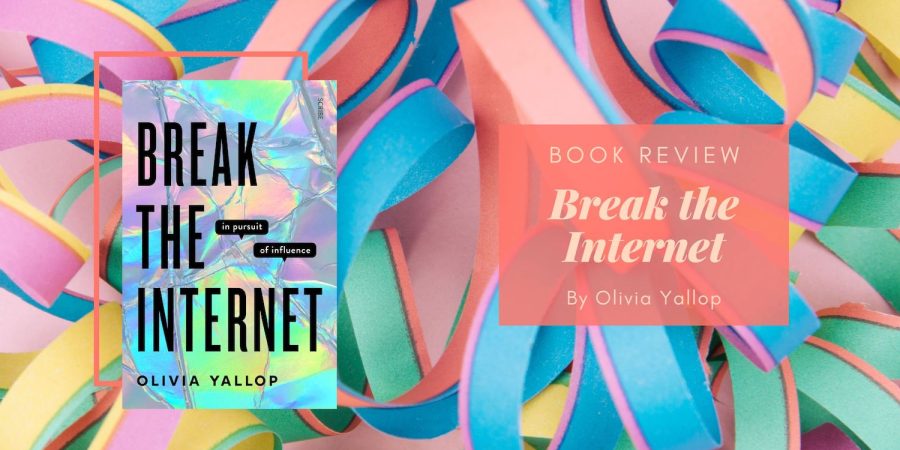As it turns out, there are quite a few books on influencers. Break the Internet is somewhere between Swipe Up For More and Get Rich or Lie Trying in terms of how positive it is about influencers, which I guess makes it fitting that I read it last out of the three.
As with Swipe Up For More, Olivia Yallop talks about much of the same issues/the drama facing influencers – Caroline Calloway and her haters, Huxley’s adoption and subsequent disappearance from Stauffer family’s youtube channel are two big things that are discussed in both books. But Break the Internet differentiates itself with Yallop’s attempt to become an influencer; which I suspect is partly for this book and partly because she was tumblr-famous for a time and thought she could be famous again.
All this, to be honest, treads the same ground as the previous books on influencers. What makes it different is its discussion of influencer economics; Yallop makes the point that most aspiring influencers don’t make money, in fact, they pay in order to someday make money. But for me, the most interesting were the discussions on hype houses and the economics of junklord youtube videos. The latter stood out to me because it was clear that this comes at an environmental cost (not to mention the workers in third-world countries who are likely being exploited making these products). Yallop uses this to discuss the concept of financialisation, where influencers and the economy start working together in closer and closer ways; an example given is of influencers investing in startups and using their influence to help the company succeed.
The line that stood out to me the most when I was reading was about the central tension in influencing:
“it [influencing] is a profit-driven activity engaged in the continuous obfuscation of its own identity and intentions.”
When I read it, I thought “yes, exactly!” This is probably the reason for my uneasy relationship to the concept of influencers. I like the idea of using the internet to be social, I like the idea of giving and receiving recommendations from friends, but I remain ambivalent about making it profit-driven. It turns something that is meant to be fun and connection-driven into something exploitative, because what else can you call using the connection your followers have with you to make money?
Yallop attempts to explore this tension a bit further in her section on breadtube, an anti-capitalist part of youtube that can make its creators a lot of money. However, she seems to take breadtube at its word that they are anticapitalistic, possibly because she enjoys their content. I wished for a bit more exploration of the hypocrisy and tension of using a capitalistic model to rail against capitalism, especially since that chapter follows immediately after the chapter on haters and I’m sure that exploring the ecosystem of relationships (and how the money flows) in breadtube, the intellectual dark web, and the far right would be fascinating.
Overall, I was pleasantly surprised by how the book developed. The start of the book seemed to be very positive about influencers, and the bit on trying to be one seemed unnecessary, but I liked how the analysis deepened in the latter half of the book. I appreciated the focus on economics here, though I still think that it understates some of the harm the influencer aspiration can cause.

Very interesting review…this is definitely not a book I’d pick up for myself, but I appreciated your review. This topic isn’t a world with which I’m very familiar. In fact, I try to stay away from most of it, though occasionally I think some of the product placement has introduced me to some useful products. What’s junklord YouTube?
I try to stay away from the influencer world too, although I’m thinking that’s getting more and more impossible.
Junklord youtube is a subgenre where the content creator goes over the top in expensive challenge videos e.g. putting one million orbeez in someone’s backyard and filming the process and results
I’m glad to hear that this turned out to be another great read about this culture of influencers, allowing you to better understand where it’s good and where it’s bad! Thanks for sharing, Eustacia! 🙂
Yup, I really enjoyed this one! I think the books that go way below the surface/into the more niche areas of the internet are more to my taste
Very interesting. I learned some new terms here, like junklord and breadtube.
I had heard of breadtube but junklord was new to me! I do know some people who watch Mr Beast, though, so I’m surprised that I didn’t find out the genre name earlier
I think it’s great that the analysis deepened as the book progressed!
I agree! I liked that it gave me new perspectives that the others hadn’t